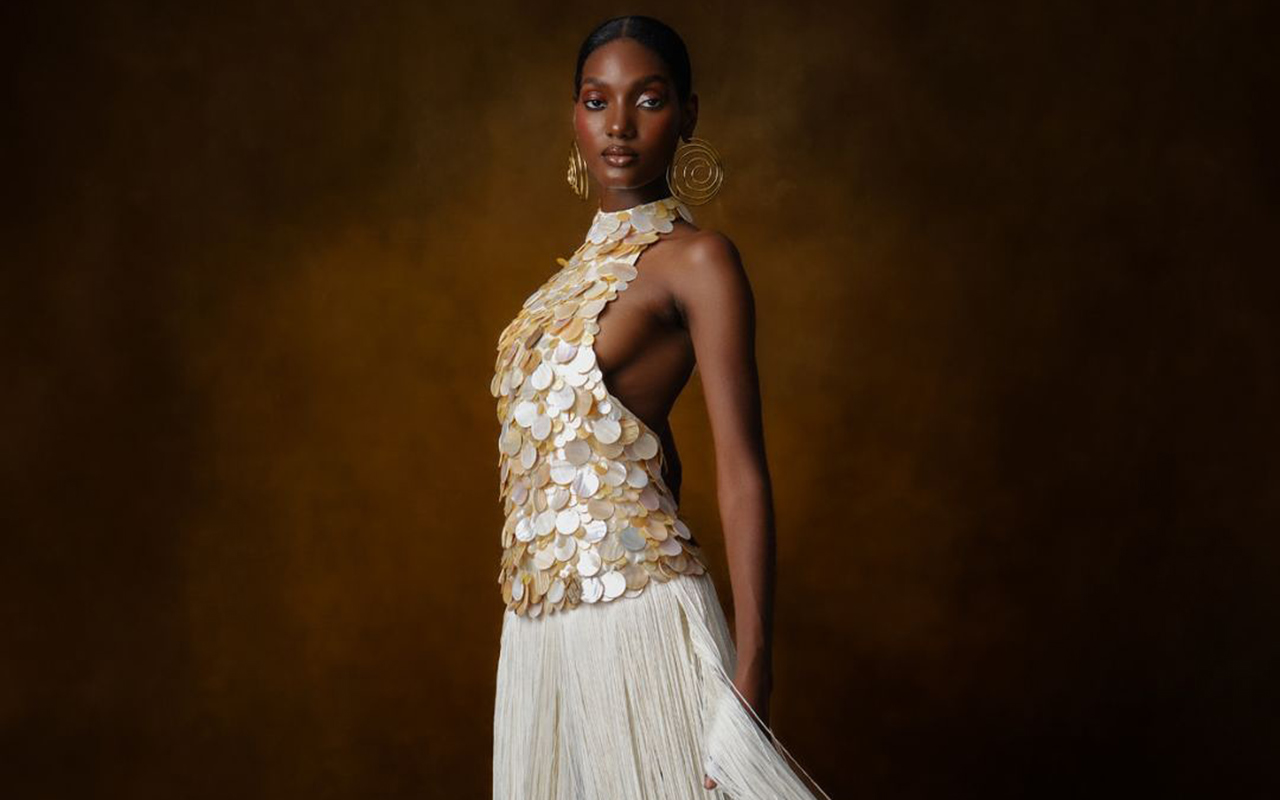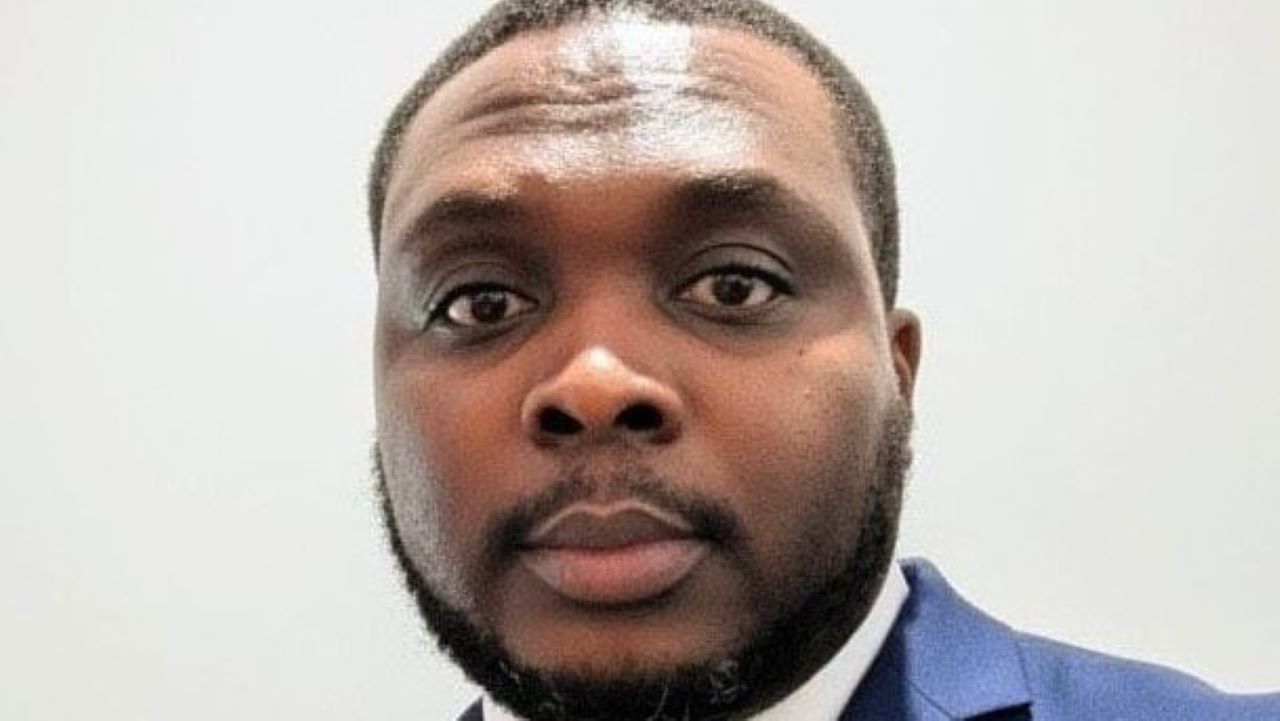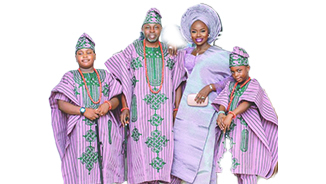
Chief (Mrs.) Victoria Folashade Thomas-Fahm is one of Nigeria’s earliest fashion designers and boutique owner (Maison Shade). The legendary designer who is in her 70’s now, set the pace for the Nigerian fashion industry in the 1960s and 1970s. Widely regarded as one of the doyens of Nigerian fashion, she is one of the founding members of the Fashion Designers Association of Nigeria (FADAN) and held the post of president for many years, tirelessly working to make it a force to reckon with.
Speaking with Tobi Awodipe at the just concluded FADAN elections, she bared her mind on the fashion industry and the various challenges that have beset it as well as the state of the association
Give us a little background about yourself?
I was trained at St. Martin’s College of Fashion, London and my trademark was using traditional fabrics to create diverse styles and designs. I didn’t just stop at designing clothes; I also drafted, cut, sewed, modelled, produced fashion shows and sold and this led to opening my boutique back then which was one of the first of its kind. If I say so, my design outfit and store, Maison Shade (Shade’s Boutique) was the go-to-place for men and women living in Lagos in the 60s and 70s. I originated the boubou – a style I created when I “feminised” the male agbada for women by reducing the volume. Some of my other creations also include Kaftans, aso-oke dresses, beaded shoes, Ankara shirts and mini dresses, as well as the twist on the iro and buba.
Apart from fashion, which other passions do you have?
I am the author of a book called The Faces of She, which has a fair number of pictures of my early designs and the glamorous sixties. I am also a tireless and passionate campaigner for made in Nigeria goods and a member of the Rotary Club where I have won several awards.
In your opinion, what are some of the obstacles preventing the growth of the fashion industry in Nigeria?
The textile-manufacturing sector has greatly deteriorated but sadly, the rot and depreciation didn’t just start yesterday but has been ongoing since the sixties. Functioning textile companies have shrunk from about a hundred to less than five now. The government always talks of revitalising the textile sector, yet doesn’t work towards realising this goal. With the level of corruption in the country now, nobody knows if the money pledged by government for the textile industry would ever be used for what it is pledged for. The patronage of made-in-Nigeria goods is very poor and discouraging but this is not just limited to the industry alone as it is a general malaise. Most people these days prefer imported things to the detriment of goods produced here.
Pricing is another factor endangering the industry. Many of us are not business-oriented. If you create 100 clothes and you sell 90 of them, that 10 you did not sell has eaten into your profit, whether you admit it or not. It is true that most designers these days charge exorbitantly and have priced their goods out of the reach of many Nigerians. Our way of thinking has to change. Imported things are cheaper because they mass-produce and this is what many of us have been clamouring for: our designers have to engage in mass production, which is called off-the-peg. Haute couture is what most designers are practicing these days and while this might be okay for some select clients, most Nigerians today sadly cannot afford it.
However, I am aware that the crippling cost of production plays a huge part in forcing up the prices of goods. Our environment is not favourable to fashion designers. Most designers have to generate their own light, water and every other single resource/raw material, and this is not good. The government is not helping us at all. We need to engage in mass production, our textile companies have to be rejuvenated and start production again. Our cotton print used to be the best in the world but that is a thing of the past now. I once took it to display in America where I premiered a collection and they were so impressed by it that it was featured in a magazine. What happened to our factories? All our tailors today are roaming around selling useless things and doing cut and join. For things to work properly as they should, the government has a huge part to play in order to move this industry forward. Many countries depend on fashion as a huge source of foreign exchange earnings. Why is our own different? Take China for example, they mass produce all sorts of things and come and dump here for us at Balogun and you see us rushing to go and buy as if we cannot do better. Fashion is economy and the sooner our government realises this, the better for us all.
What advice do you have for the newly elected officials of FADAN?
I can only urge them to work harder to take the industry to greater levels and work hand in hand to foster peace, growth and unity. In every association, there would always be disagreements, it is important that you are able to look past that and put the interests of the association above personal interest. I have heard a lot of stories but I am not going to take any sides, I just want everyone to work together to make this association greater than how we left it.






